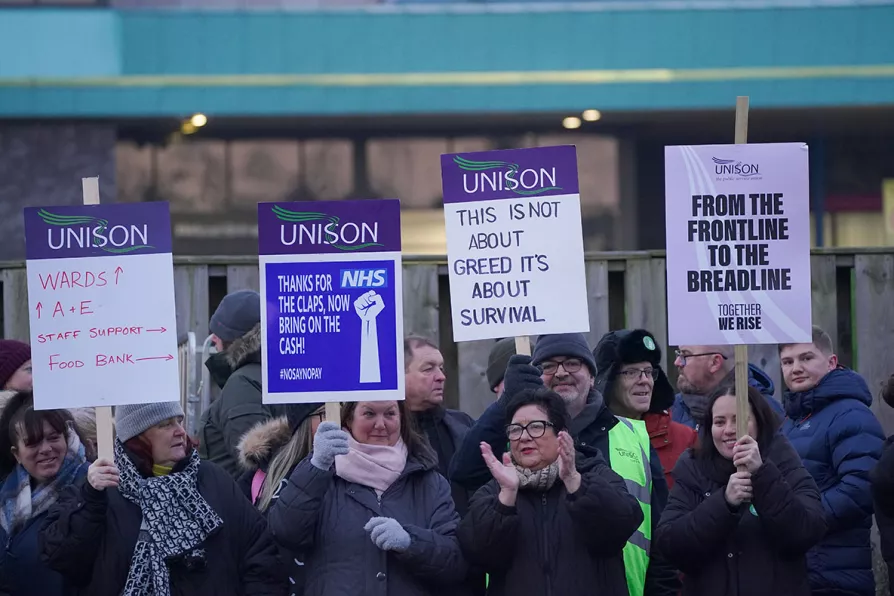UNISON has urged the government to begin talks to prevent another year of strike action as NHS staff in England face being paid just a penny more than the minimum wage this April.
The biggest NHS union said that the ambulance workers, nurses, cleaners, medical secretaries, occupational therapists, porters and other staff it represents already know that they will not receive this year’s pay rise on time in April because of delays in the NHS pay review body (PRB) process.
Unison has written to Health Secretary Victoria Atkins, stressing the urgency of a proper pay rise this year if a repeat of last year’s widespread strikes in the NHS is to be avoided and for there to be any hope of filling the numerous vacancies and stopping waiting lists from “spiralling.”


 Latest editorial
Latest editorial













